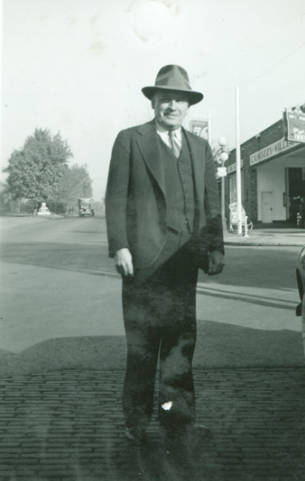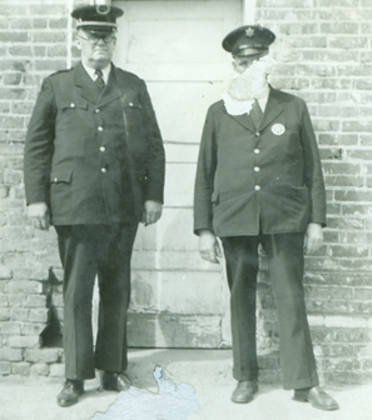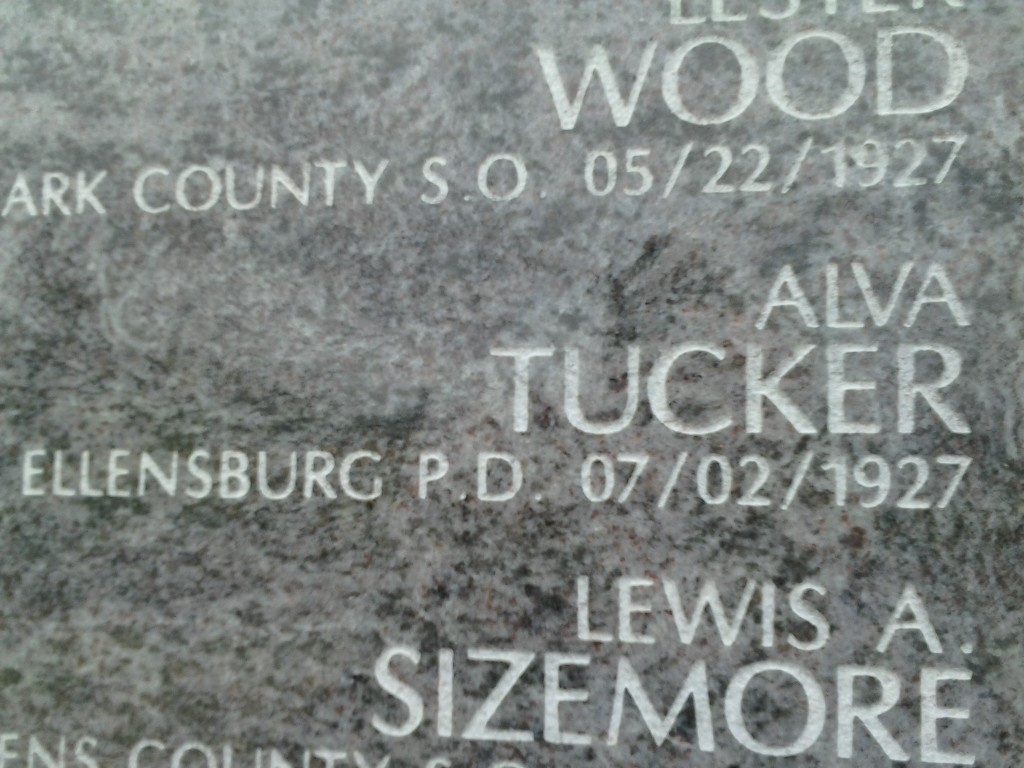The Dark Side of Prohibition
From the desk of Steve Willis, Central Library Services Program Manager of the Washington State Library:
When the following jokey editorial in The Ellensburg Capital was printed June 23, 1921, the 6-year old statewide experiment in Prohibition was clearly not being taken seriously. But a dark side to this light-hearted attitude later engulfed two individuals mentioned in this opinion piece:
AH, HA! THE SECRET IS NO LONGER A SECRET! WHO IS SELLING LIQUOR?
“Listen, dear reader: It is said that liquor is being sold in Ellensburg.”
“My goodness! Can you imagine anything like that? Why, what is the county coming to? Is it possible the fair name of our city is being fairly or unfairly so flagrantly flaunted that this matter has become public property and is being talked about upon the street corners? And has it reached the stage where officers of the law mention it? Can this be true? Again we say, can this be true?”
“Is it possible that a bottle of the elixir of life can be bought or bartered for within the corporate limits of this city? Again we say, can it? Oh, this is simply awful! It surely cannot was. If this IS true, we would like to have someone explain to us the whyness of the whichitude. Things have come to a pretty pass when the bootlegger is brought under public suspicion. Has the public no heart? Would it take away the living, the bread and butter from the mouth of the illegal dispenser of coffin varnish and force him to work and earn his living by the sweat of his brow like honest people? Shades of Peruna, this is heart-rending! Bring on the smelling salts ere we faint. We are surely plumb flabbergasted.”
“The bootlegger came in for considerable discussion at the council meeting last Monday night when that body and City Attorney Kern were informed that liquor is being sold in Ellensburg. They were told that city police officers were refused search warrants when they desired the same to search premises where they thought liquor was being sold. Police Judge Flynn stated that he had refused to issue the warrants for the reason that he believed he had no legal right to issue them and he took his position from the fact that a superior court judge in Bellingham had handed down a decision a few months ago to that effect.”
“Chief of Police Tucker stated to the council that he had been unable to obtain search warrants but that on different occasions he had taken county officers to places which he had under suspicion. Night Officer Edmundson told the council that he is convinced that liquor is being sold in Ellensburg but that he had been unable to procure search warrants.”
“City Attorney Kern stated that he will look into the matter thoroughly that is into the legal part of the proposition– and find out if there is anything which prevents the police judge from issuing the search warrants. He said that the municipality would be bound only by the decision of the local superior court or the state supreme court.”
“What we can’t understand is what lead anybody to think that ‘hard licker’ is being exchanged for coin of the realm right here in Ellensburg. Why, this is the county seat of Kittitas county and surely nobody would have the nerve to offer for sale alcohol or its by-products here. Now if someone wanted to go six or seven miles out in the country and buy one or two 16-gallon kegs of Canadian whisky, that’s a different thing. But to for one minute presume that whisky can be purchased right here is astounding. But, of course, you can never tell, there may be something to it after all. However, if nothing develops to warrant the issuing of a warrant someone should be spoken to in a harsh tone of voice. Our curiosity has a reached a point where it is 125 degrees above the city hall and we wait with fevered brow and parched tongue for news from headquarters.”
“If there be bootleggers in our midst we say it is no time for idle chatter, no time for mollycoddle stuff. The powers that be should repeat the words of Benjamin Franklin as he stood shoulder to shoulder with Davy Crockett at the battle of the Alamo, ‘Officer, do you duty; let the corks fall where they may.'”
The Ellensburg Capital ran from 1887 to about 1951. WSL has an almost complete run available on microfilm and interlibrary loan.
In his History of the Yakima Valley, Washington (1919) (also available in digital form from WSL) , W.D. Lyman writes: “The name of the paper was a pointer in the direction of the expectations of the proprietor and his fellow citizens to the future official status of the metropolis of the Kittitas. But alas, like many of the hopes of ‘mice and men,’ which the Scottish bard assures, and with more truth than in some of his sayings, ‘gang aft agley,’ this hope was dissipated and all the ‘capital’ Ellensburgers have to fill the cavity with is the name of the newspaper, a city block, and an addition.”
Judge Mathew E. Flynn, had come to Washington Territory as an army soldier and was discharged at Vancouver around 1884. He had lived in Ellensburg since 1886, was elected Mayor in 1904 and served for a couple terms. He was a Justice of the Peace in that city from 1914 to his death on his 76th birthday, August 26, 1930.
Francis Asbury Kern, known as “F.A.,” was an attorney who arrived in Ellensburg from his native Virginia in 1909. In 1912 he won the election for Prosecuting Attorney as a member of Theodore Roosevelt’s Progressive Party. He is chiefly remembered as a key figure in the completion of the High Line Canal, the largest irrigation project in the Ellensburg area. F.A. died at age 77 in 1961. Kern’s photo is featured in the Ellensburg portion of WSL’s Washington Rural Heritage collection.
William A. “Salty Bill” Edmondson joined the Ellensburg PD in 1918. It was a career move that eventually landed him the Chief position from 1937-1939. He died in Seattle at age 62 on June 4, 1941. His photo is also included in the Ellensburg portion of WSL’s Washington Rural Heritage collection. He’s the gentleman on the left.
The fate of Chief Alva Tucker and officer Edmondson casts a shadow over the humor in the editorial above. On the evening of July 2, 1927 the two officers confronted Johnny Emerson, a young bootlegger. The three men had a long personal history of playing cat and mouse. Without any words a shootout took place on a downtown street. When the smoke had lifted, both Tucker and Emerson were dead.
Tucker, who was 53 at the time of his death, left behind a widow and four children. He is the only police officer in Ellensburg history to have been killed in the line of duty. In 1998 he was a Washington State Medal of Honor recipient and his name is included on the Law Enforcement Memorial on the Capitol Campus, a reminder that Prohibition had a dark side.


